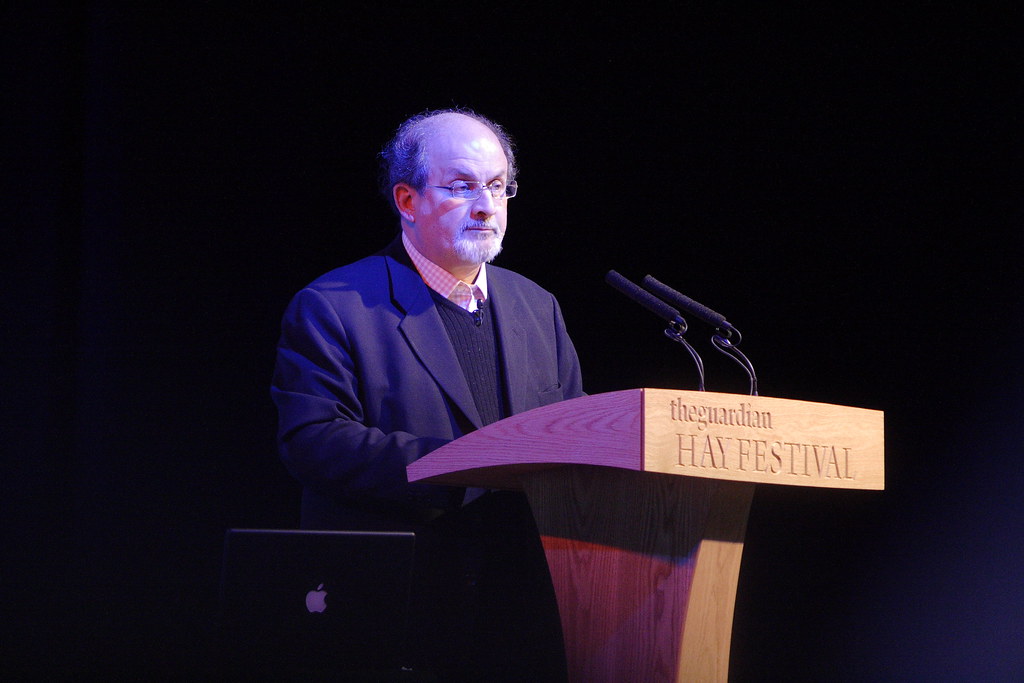Nothing I am about to write should be read as diminishing in any way my sympathy for Salman Rushdie, or my outrage at the appalling attack on him. Those who more than 30 years ago put a fatwa on his head after he wrote the novel 'The Satanic Verses' made this assault possible. They deserve contempt. I wish him a speedy recovery.
But my natural compassion for a victim of violence and my regularly expressed support for free speech should not at the same time blind me or you to the cant and hypocrisy generated by his stabbing on Friday, just as he was about to give a talk in a town in Western New York.
British prime minister Boris Johnson said he was "appalled that Sir Salman Rushdie has been stabbed while exercising a right we should never cease to defend". His Chancellor, Rishi Sunak, one of the last two contenders for Johnson's crown, concurred, describing the novelist as "a champion of free speech and artistic freedom".
Across the Atlantic, President Joe Biden stressed Rushdie's qualities: "Truth. Courage. Resilience. The ability to share ideas without fear" We reaffirm our commitment to those deeply American values in solidarity with Rushdie and all those who stand for freedom of expression."
The truth is that the vast majority of those claiming this as an attack not only on a prominent writer but on Western society and its freedoms, have been missing in action for the past several years as the biggest threat to those freedoms unfolded. Or, in the case of Western government leaders, they have actively conspired in the undermining of those freedoms.
Prominent figures and organizations now expressing their solidarity with Rushdie have kept their heads down, or spoken in hushed tones against - or, worse still, become cheerleaders for - this much more serious assault: on our right to know what mass crimes have been committed against others in our name.
Rushdie has won trenchant support from Western liberals and conservatives alike, not for being a brave articulator of difficult truths, but because of who his enemies are.
Holding up a mirror
If that sounds uncharitable or nonsensical, consider this. Julian Assange has spent more than three years in solitary confinement in a high-security prison in London (and before that, seven years confined to a small room in Ecuador's embassy), in conditions Nils Melzer, the former United Nation's expert on torture, has described as extreme psychological torture.
Melzer and many others fear for Assange's life if British and US authorities succeed in dragging out much longer the Wikileaks founder's detention on what amounts to purely political charges. Assange has already suffered a stroke - as Melzer notes, one of the many potential physical reactions suffered by those enduring prolonged confinement and isolation.
And all of this is happening to him, remember, for one reason alone: because he published documents proving that, under cover of a bogus humanitarianism, Western governments were committing crimes against peoples in distant lands. Assange faces charges under the draconian Espionage Act only because he made public the gruesome truth about Western military actions in places like Iraq and Afghanistan.
Yes, there are differences between Rushdie and Assange's respective cases, but those differences should elicit more concern for Assange's plight than Rushdie's. In practice, the exact opposite has happened.
(Note: You can view every article as one long page if you sign up as an Advocate Member, or higher).






